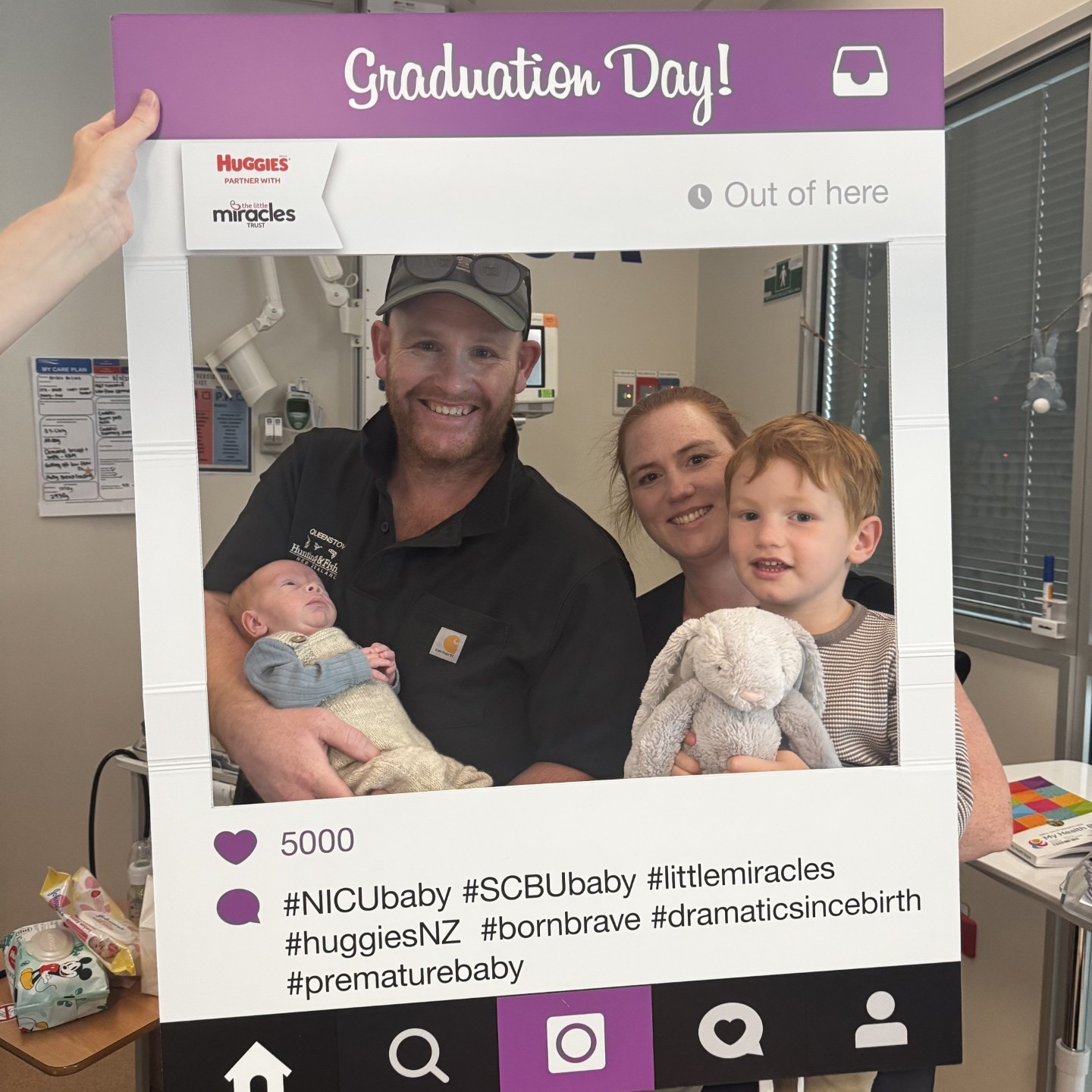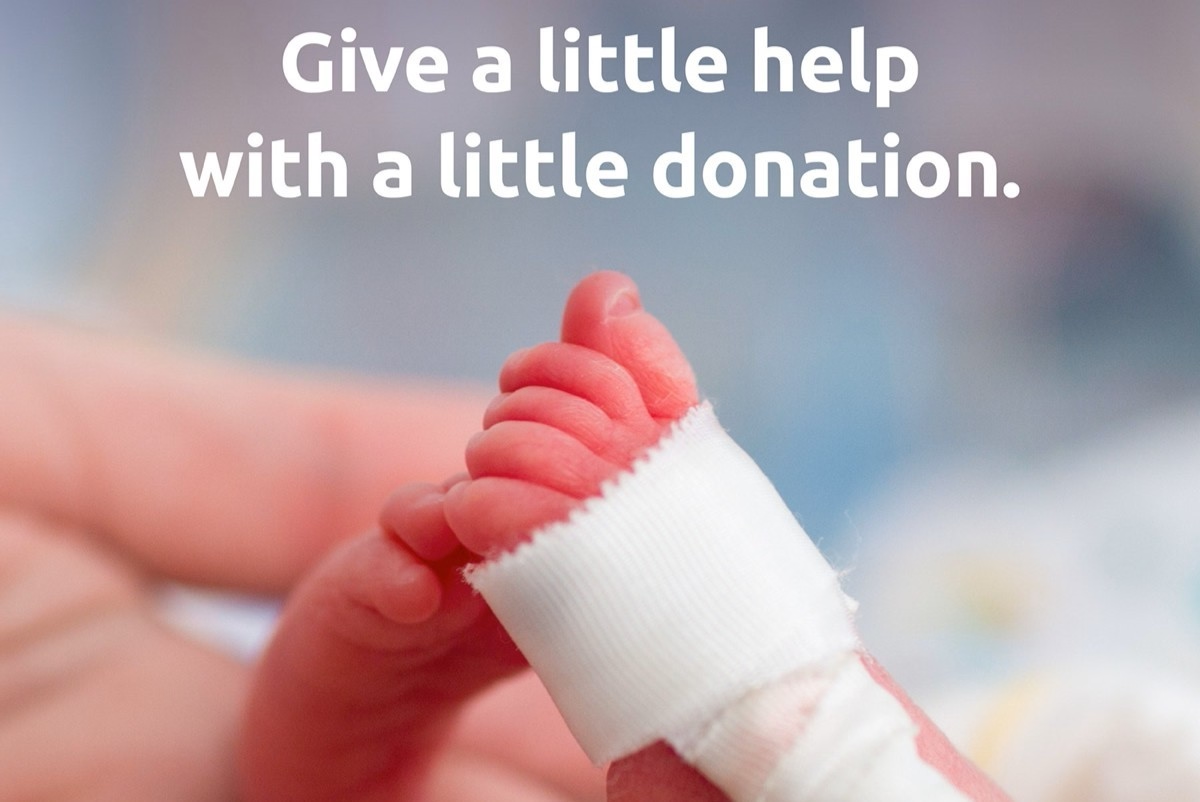
Leaving the Unit
Congratulations on reaching this incredible milestone – your baby is officially a NICU or SCBU Graduate!
There may have been times when taking your baby home felt impossibly far away, and now the big day has finally arrived. It’s a moment to celebrate — but it’s also natural to feel overwhelmed, especially if your baby is going home with oxygen, tube feeding, or ongoing medical needs.
We’ve gathered advice from families who’ve been through this journey, along with insights from neonatal staff, to help you feel more confident and supported in this next chapter.
Getting Ready to Go Home
Rooming In
Many neonatal units offer parents the chance to ‘room in’ for a night or two before discharge. This means you’ll care for your baby in a room near the unit, with staff nearby for support. It’s a great opportunity to build confidence in a safe environment and find out what you may still want to learn or ask before going home.
Preparing Your Baby
If you’re expressing or bottle feeding, bring in the bottles and teats you’ll use at home so your baby can get used to them. You might also like to bring a soft blanket or small item that smells like home, or a bright toy (check with staff first). Familiar smells and sights can help comfort your baby during the transition.
Graduation Certificate – keep image
To celebrate your baby’s discharge, the Little Miracles Trust provides Graduation Certificates to every neonatal unit in Aotearoa. Ask your nurses if they have one for you – it’s a lovely keepsake for your memory box and a reminder of how far you’ve come.
Safe Transport Home
By law in New Zealand, all children under seven must travel in an approved child restraint. Your baby must be in a rear-facing car seat, even on short trips. If you don’t own a car, consider hiring or borrowing a suitable baby seat. Your unit may know of a local loan scheme.
Feeling Confident at Home
Before leaving the unit, make sure you feel confident in caring for your baby — and don’t be afraid to ask questions. Your neonatal team is there to help you prepare. If your baby has complex needs (like oxygen or a feeding tube), ensure you’re fully trained on how to use equipment and administer any medication.
Here are a few things to check:
- Have you been shown how to give medications?
- Do you feel confident using any specialist equipment?
- Do you know how to prepare and sterilise bottles?
- Have you been given safe sleep guidance (e.g. preventing SUDI)?
- Are you comfortable bathing, feeding, and settling your baby?
- Do you have enough support or information for breastfeeding?
- Do you know how to monitor your baby’s temperature?
- Do you have emergency contact info for your baby’s GP, hospital team, or after-hours help?
Learning CPR
Knowing basic CPR can give you extra peace of mind — and it’s a life skill worth having. Ask your unit if there’s a course or demonstration available.
You’re Not Alone
Bringing your baby home is a huge step — and it’s okay to have mixed emotions. You’ve been through so much. There will be moments of joy, but also moments of adjustment. Support is available every step of the way, whether from your local health team, online groups, or other NICU families.
You’ve got this — and we’re here for you.
Also, this section has an unusual additions down the bottom ‘thanks for sharing your story’ & ‘give a little help with a little donation’ – please remove
Transferring Units– NEW resource – Please add this as a ‘button’ called ‘My baby is transferring units’ and add to the Supporting Families section
When Your Baby Is Transferring Units
In Aotearoa, it’s common for babies in neonatal care to transfer between hospitals or units during their stay. This may happen for many reasons, and it can also bring up new questions or emotions.
Whether your baby is transferring closer to home, moving to a unit with more specialised care, or stepping down to a smaller unit as they grow stronger, here’s what to expect – and how to feel supported along the way.
Why do transfers happen?
Babies are often transferred:
- To move closer to home as they become more stable
- To receive a different level of care, such as more intensive support (NICU) or a lower level (SCBU)
- To make space in a regional NICU for higher-need or more premature babies
- For specialist treatment not available in the current unit
While a transfer can feel unsettling, it may happen for various reasons – sometimes it’s a positive sign of progress, and other times it’s due to medical need, location, or capacity. Whatever the reason, it’s okay to feel a mix of emotions.
The transfer process
Your neonatal team will explain:
- When and where your baby is going
- How they’ll be transported (usually by a specialist neonatal transport team)
- Who will accompany them (depending on your baby’s needs and your location, this may include a nurse, doctor, or paramedic)
If you’re not able to travel with your baby, the team will ensure you’re kept updated throughout the journey. The receiving unit will be expecting your baby and ready to provide seamless care on arrival.
Travel and accommodation
If your baby is transferring to a unit in another city, your current hospital’s social worker, nurse, or coordinator can help with:
- Travel arrangements for parents or whānau
- Accommodation options (such as Ronald McDonald House or hospital family units)
- Financial support, such as the National Travel Assistance scheme
Don’t be afraid to ask for help – this is part of your baby’s care journey, and support is available.
What about my role as a parent?
Every unit operates a little differently, and it can take time to adjust. You might find changes in:
- Visiting hours or policies
- What support is available (like lactation consultants or parent rooms)
- Routines and daily schedules
The new staff will introduce themselves and do their best to help you feel comfortable. You are still your baby’s most important person — your presence, voice, and touch matter more than ever.
If you’re expressing breastmilk, you may need to discuss how to transport and store it, and whether you need access to a breast pump at the new unit.
Tips for the move
Here are some things you might want to bring or arrange before the transfer:
- Your baby’s clothes, blankets, or comfort items (ask staff what’s appropriate to send or bring)
- Any expressed breastmilk, clearly labelled
- Your own personal items, chargers, snacks, and spare clothes
- A notebook or journal — to record updates, notes, or questions
- A list of contacts for both units, and any whānau who need to be informed
Common Feelings
It’s normal to feel:
- Relieved your baby is progressing
- Anxious about leaving familiar staff or routines
- Frustrated if you’re separated from your baby during the move
- Overwhelmed by yet another transition
All of these feelings are valid. Talk with your care team, partner, or support people. Other NICU parents have felt the same way — you are not alone.
If you’re unsure about what to expect or need emotional support, the Little Miracles Trust can help. We’ve supported thousands of families through neonatal journeys across the country – including unit transfers, long stays, and the transition home.

Support Us
If you want to help our support of families going through the stress and anxiety of a neonatal journey, you can donate via the link below.
- The Little Miracles Trust provides support to families of premature or sick full-term babies as they make their journey through Neonatal Intensive Care, the transition home, and onwards. We do not receive any Government funding and are entirely reliant on the generosity of individuals, companies and organisations in the form of donations, value-in-kind donations, grants, sponsorship and fundraising events to supplement operating costs and fund our services and initiatives.
- As we are a registered charity (CC56619) with Charities Services New Zealand we will send you an IRD compliant tax receipt – this will happen automatically by return email.